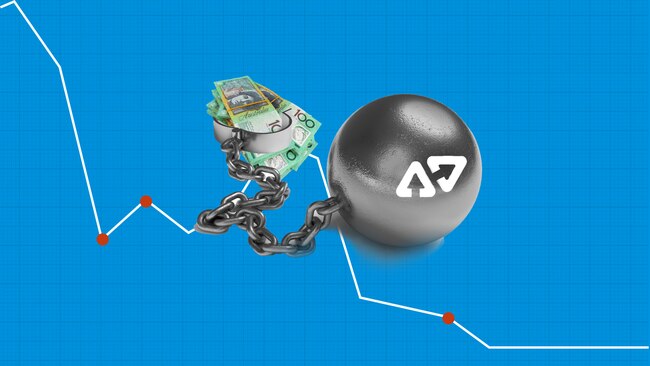Our skyrocketing $104m Afterpay debt
Afterpay has shared its profits and losses and it's a shock.

Afterpay has shared its profits and losses and it's a shock.
There is a twist in the buy-now-pay-later tech story of the decade.
Afterpay - which was sold only in February, making its founder, Nick Molnar, a billionaire at age 32 - lost $345.5 million in the final six months of last year. It is a breakneck downhill run on the $79.2 million it lost in the full year prior.
Its dire losses are partly a result of that deal, when Afterpay was sold to US financial tech firm Block (fun fact: Block is run by Twitter founder and ex-CEO Jack Dorse,), as Afterpay ran up big bills getting itself ready for the sale. The results also show hefty sums spent on advertising (hello, Afterpay Fashion Weeks in Sydney, London and New York!).
It has certainly been expensive keeping competitors, such as Zip or Klarna, at bay.
But one interesting number jumps out of the financial report. By no means solely responsible for Afterpay’s woes, “bad debts” are nonetheless soaring - which paints an interesting, and worrying, picture of an Afterpay borrower.
Put simply, more and more Afterpay customers are not paying back their loans.
Afterpay customers’ bad debt are $176.8 million, up from $72.1 million a year earlier.
Financial Counselling Australia CEO Fiona Guthrie said: “A lot of people are struggling to pay BNPL debts.”
“(Afterpay accounts) are so easy to get. People can get multiple accounts. People are being encouraged to use them for day-to-day living expenses. And that is obviously targeting people who are on the margins financially, already.”
There has been a strong push for stricter rules around BNPL. You see, Afterpay doesn’t use a credit recording system, meaning it does not check your credit score.
Some of you might be thinking “That’s awesome! Using Afterpay won’t stop me from buying a house!”
While that is kind of true. The bigger problem is that customers are not protected the way they are with traditional credit cards.
“Afterpay doesn’t use a credit reporting system. Some BNPL providers do, but overall the whole credit market is being distorted because of this new form of credit, which is sitting outside of the consumer protection frameworks and the credit reporting system,” Ms Guthrie said.
“(Customers) wouldn’t have such high debts if Afterpay, Zip or whoever were required to abide by the same laws as other credit providers in the national credit code.”
Afterpay's competitor, Zip, had a bad day too - its share price fell almost 6 per cent, most likely to do with concern over interest rate rises (a tricky climate for tech stocks) - on a bumpy day overall for the Australian share market.



